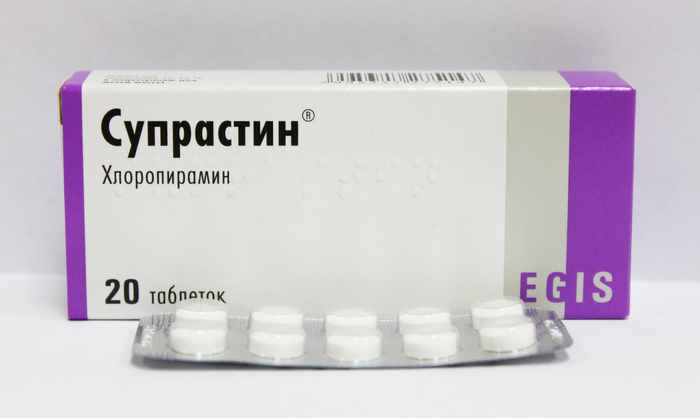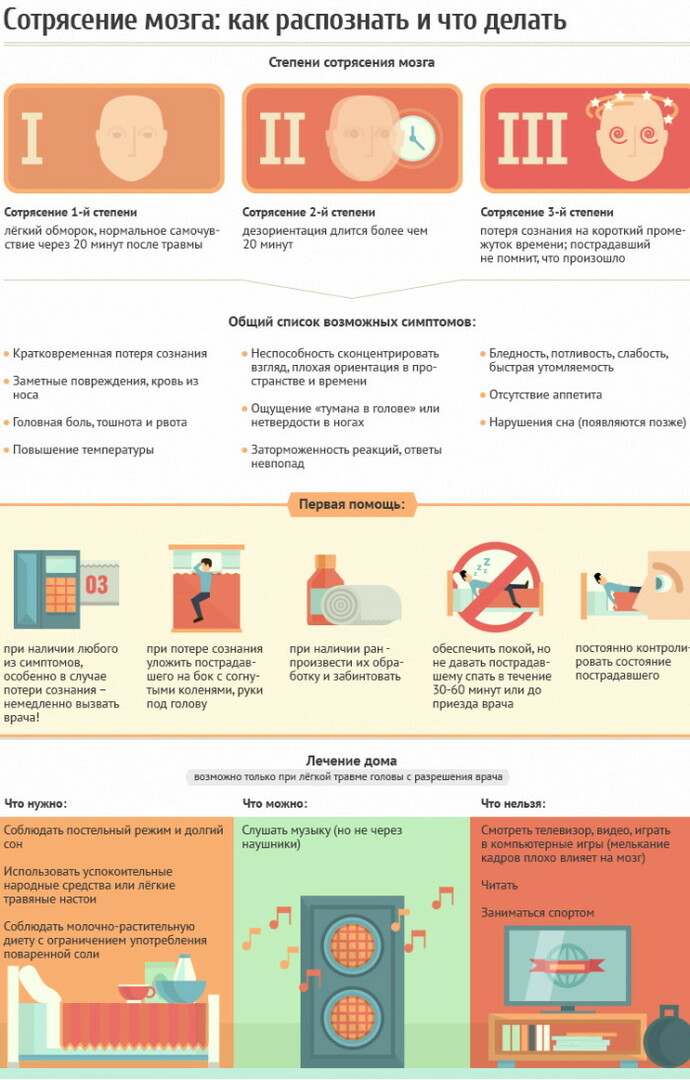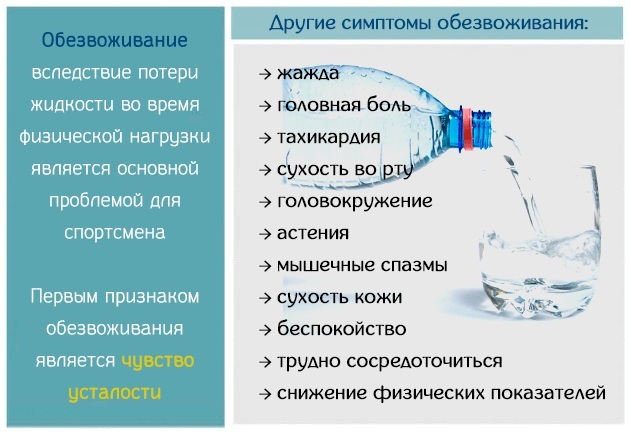Content
- Positive influence
- What diseases help
- Properties
- Harm
- Side effects
- Microflora disorders
- For pregnant
- For children
- With the wrong reception
- Antibiotics in food
- Do I need to take antibiotics?
- Video about the effect of antibiotics on the body
In modern medicine, antibiotics are widely used, which are special substances of biological types that affect the body, quickly suppressing the spread of various viruses, microbes, microorganisms. There are more powerful drugs that completely destroy them. Antibiotics have their own specific effect.
This means that a certain type of pathogen is not susceptible to every such drug. There is a large classification of antibacterial drugs, depending on the spectrum of their action. But since these are quite strong substances, they can also have a negative effect on the human body. Therefore, it is so important that it is the doctor who prescribes the drugs.
Positive influence
Before penicillin was discovered, people very often suffered from bacterial infections, when even a minor scratch could cause death. In 1928, there was a real breakthrough with the advent of the first antibiotics, which immediately saved many lives.
At first, doctors saw an extremely positive impact, but only after a while the scientific and medical community conducted more detailed studies and came to the conclusion that antibiotics are recommended only in extreme situations.
The main positive effect of this type of drugs is that they are able to quickly destroy harmful bacteria. However, an important feature of such drugs is that they destroy not only pathogenic microorganisms, but also those that are necessary for the human body for normal life.
If the patient suffers from a serious pathology that not only harms his health, but also affects daily activities, then only antibacterial drugs can quickly relieve symptoms and improve the quality of its life.
What diseases help
Antibiotics affect the body differently from other types of drugs. For example, over time, the body becomes resistant to certain groups of antibacterial drugs, so they are prescribed exclusively in certain situations.
Drugs in this category are recommended for diseases:
- Which are impossible or extremely difficult to cure without the risk of subsequent complications (you cannot do without the use of potent drugs).
- In which there is an increased risk that the virus will be transmitted to other people;
- Too long treatment period. In this case, antibiotics become the "lesser evil", since the course of treatment with such drugs is usually very short.
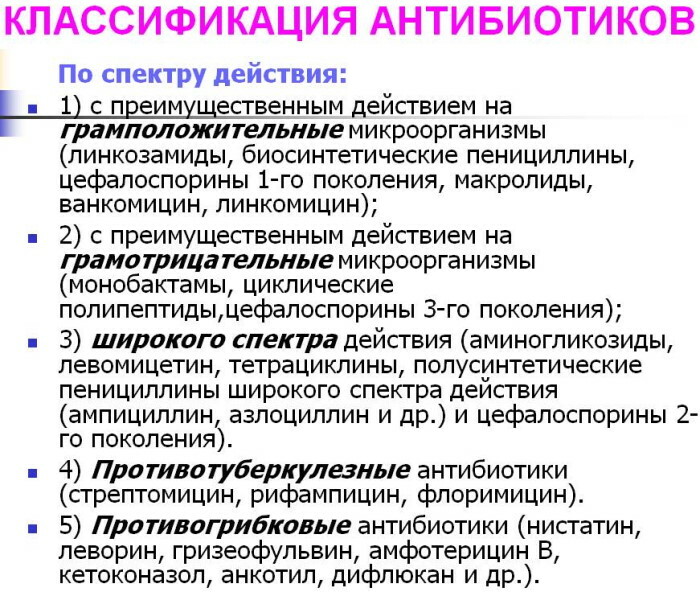
Also, drugs of this type can be prescribed to people who suffer from chronic pathologies. In this case, antibiotics are used as a prophylaxis. But they do not have to be categorized as broad spectrum.
According to one theory, drugs in this category are very effective in fighting bacteria, but if it is necessary to get rid of the virus, then such components will be completely useless. That is why it is extremely important that the doctor conducts an examination and makes sure that the source of infection is a bacterium, and not a virus.
Otherwise, a person will start using antibiotics and at the same time will only destroy beneficial bacteria that play an important role in the body. This could reduce its resistance to the virus that it really needed to get rid of.
But more and more confirmation is gaining the theory that the bacteria that are in the human intestines contribute to the faster spread of the virus throughout the body. From this point of view, in the fight against infection, when the patient's immunity is already reduced, the use of antibiotics is allowed, since they reduce bacterial diversity, and therefore do not allow the virus to spread more swiftly.
Due to this property, drugs of this type can be prescribed for some viral diseases, including COVID-19.
With the course of a viral disease, human immunity decreases, the body becomes too vulnerable to pathogens and cannot resist bacterial infections. This greatly complicates the classical treatment, especially if it is necessary to improve a person's condition as soon as possible, since there is a risk of more serious complications.
Scientists used to be convinced that human lungs were sterile. It wasn't until 2019 that it was believed that they were actually related to the gut microbiota. This means that the bacteria it contains (including the positive ones) may be helpful in treating certain lung conditions. Accordingly, in such a situation, antibiotics are not recommended to be taken.
Of course, antibacterial agents can save a person's life. But before prescribing an antibiotic, especially a broad-spectrum (that is, the most potent) the physician must make sure that such treatment is really necessary for the patient and its benefits will outweigh risks.
In 2011, doctors increasingly began to come to the conclusion that antibiotics have a positive effect on the dynamics of the treatment of both viruses and infections. From this it is obvious that the effect of drugs in this category has not yet been fully studied.
Properties
There are a huge number of very different subcategories of antibiotics, but usually there are 6 main groups.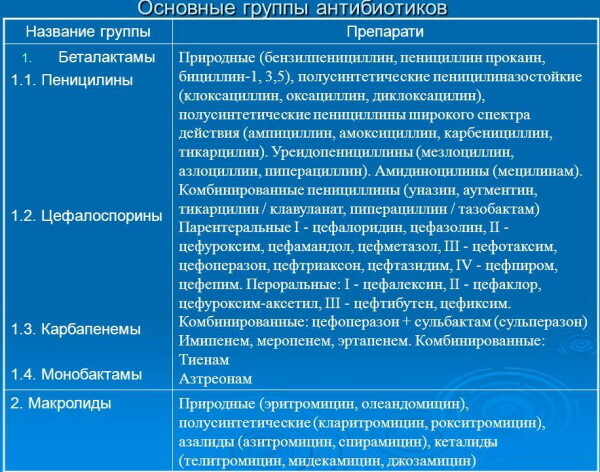
| Antibiotic group | Peculiarities |
| Penicillins | These are the very first antimicrobial drugs that have been obtained from penicillium fungi. For a long time, this particular group of antibiotics was the most popular in the treatment of infectious diseases and was used everywhere. |
| Cephalosporins | One of the most potent antimicrobial groups with extensive action. This means that an antibiotic of this category completely destroys pathogenic microflora, regardless of its specific source. Also, this group is relatively well tolerated by the human body. |
| Macrolides | This category of antimicrobial drugs has a narrow spectrum of action. This means that the drug is not able to destroy the diseased cell, but the drug stops its further growth. It is one of the most popular medicines prescribed by doctors. This category includes Erythromycin, Azithromycin, Spiramycin. |
| Tetracyclines | This category of antimicrobial agents is used in the treatment of infectious diseases of the upper respiratory tract, as well as in the development of pathologies of the genitourinary system. |
| Fluoroquinolones | This is another broad-spectrum antibiotic that can kill almost all common pathogens. Today there are drugs of the 1st and 2nd generation on sale. As a rule, doctors prescribe such powerful drugs only for very complex diseases, such as Pseudomonas aeruginosa. |
| Aminoglycosides | They have a fairly large area of use. The most popular drug in this category is streptomycin, which is used in the treatment of tuberculosis and plague. Also, such drugs are effective for various ophthalmic infections and other problems with the visual organs. |
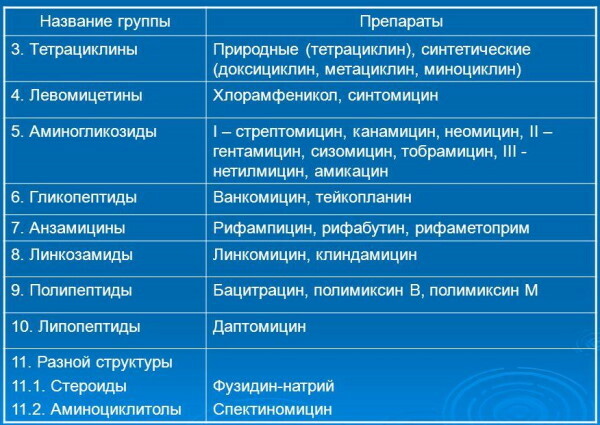 The properties of a drug can be determined not only by its category, but also by generation. For example, some antibiotics are already being produced in the sixth generation.
The properties of a drug can be determined not only by its category, but also by generation. For example, some antibiotics are already being produced in the sixth generation.
Penicillin is the very first natural antibacterial drug, but its composition has improved since the third generation. In addition to the main component, inhibitors were introduced into it. Accordingly, the higher the generation of the drug, the more effective it will be, since it uses more potent and modern means.
More effective in the way of administration is considered to be those drugs that are injected into the human body by injection. Also on sale there are ointments, tablets, syrups, capsules, suspensions and even suppositories that must be injected into the rectum.
Harm
Antibiotics affect the body with varying intensity, but even the most harmless drug always has certain contraindications or side effects. The more potent a remedy is, the more various problems it can provoke in the human body. Antibiotics are some of the most harmful drugs.
Side effects
First of all, a person may suffer from an allergic reaction, that is, from hypersensitivity to certain components of antibiotics. It is for this reason that, when choosing an antibacterial agent, the doctor must clarify with the patient what he is allergic to, and also list the side effects of the selected drug.
With mild allergic reactions, the patient may only complain of a small skin rash. But there is also a risk of developing anaphylactic shock. In this case, severe shortness of breath, facial swelling and shortness of breath appear.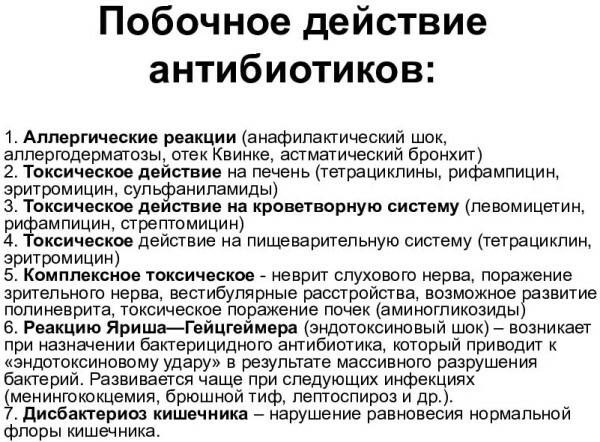
Also, allergies can occur if the body's immune system mistakenly begins to take antibiotic for the substance with which it must fight (that is, it "sees" viruses in the drug or bacteria). If the immune system has become too sensitive to the drug, then a corresponding reaction develops. However, today, most often allergies appear when penicillin or other types of potent drugs of previous generations are used.
If a person develops hives or any other painful type of rash, then it is necessary to immediately stop taking the selected antibiotic and choose another remedy. To relieve an allergic reaction, it is required to undergo treatment with antihistamines. If there is a risk of intoxication, the use of a sorbent is allowed. For example, it copes well with allergic reactions of the Ecoflor product.
Microflora disorders
The main harm that antibiotics do is the destruction of beneficial bacteria in the human body. That is why it is also recommended to select prebiotics before taking such drugs. They need to be taken several months after the main course of treatment has been completed. In some situations, such drugs can also be taken simultaneously with antibacterial agents.
The body needs bacteria that are able to form stable homeostasis. Normal activity is possible only if the content of all the necessary bacteria in the intestine is balanced. An antibiotic by its action is an inhibitor that suppresses chemical reactions, so it also destroys beneficial microbes, rather than recognizing them. This leads to a serious disruption of homeostasis.
In simple terms, after taking an antibiotic, a person gets a sterile environment inside himself. It is capable of rapidly developing exclusively pathogenic microbes. However, beneficial bacteria require more time and additional activities, that is, taking prebiotics. Some doctors claim that the body's microflora is restored almost immediately after a course of antibiotics. But this is not the case. In fact, it can take years.
The frequent appearance of rashes is also explained by the fact that human microflora is contained not only in the intestines, but also on the skin, and throughout the body as a whole. Consequently, when an antibiotic kills beneficial bacteria, it can cause a wide variety of reactions.
When taking potent drugs, intestinal dysbiosis may develop. In such a situation, diseases of the small intestine may also appear, which are more often diagnosed with a violation of the microflora. Some of the intestinal cells disappear.
It is difficult to assess all the negative actions of antibacterial agents, since in the medical community they began to think about this relatively recently. But it is already known that antibiotics that belong to the category of penicillins, cephalosporins, clindamycins can also provoke pseudomembranous colitis. This pathology develops against the background of the activity of clostridial bacteria. They begin to multiply very actively in conditions of damaged microflora.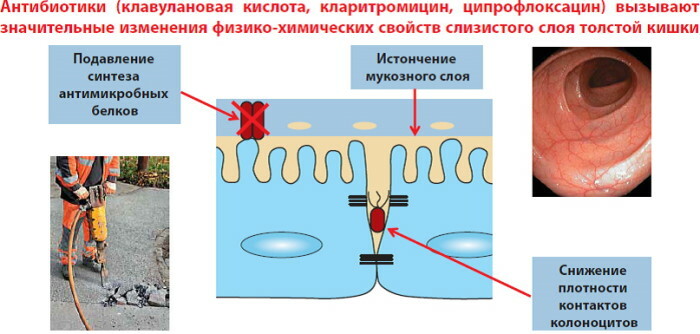
Antibiotics can affect the body negatively, provoking quite serious problems. That is why they should be carefully considered and discussed with your doctor. Some specialists still adhere to the old principles of medicine and prefer to prescribe antibiotics just in case, to ensure that the patient is cured. However, this is a completely wrong approach if the pathology can be stopped by conservative or more gentle methods.
For pregnant
The use of antibiotics during gestation is a controversial topic. If we consider any recommendations of obstetricians-gynecologists, then in them you can find clear instructions that during pregnancy it is necessary to exclude the use of any drugs at all. In extreme cases, only very light remedies are allowed that allow you to relieve severe symptoms, for example, toxicosis.
But if it happens that a woman develops a serious infection that threatens her health and life or the fetus itself, the doctor may take the risk and offer treatment with antibacterial means.
For example, they can be prescribed for sexual infection, pneumonia, pyelonephritis and many other dangerous conditions. The drug is selected depending on the period of bearing the child and the condition of the woman. The most dangerous period for taking antibiotics is the first trimester of pregnancy.
During this period, the formation of all vital organs of the embryo is just beginning. If at this time you start to use an antibacterial medicine, then it will begin to destroy the microflora and damage to important functions and organs of the child will occur. They may develop abnormally with abnormalities or congenital abnormalities. If the threat is even higher without antibiotics, then a woman's treatment is carried out under the strict supervision of a doctor.
If a woman was treated with antibacterial drugs before pregnancy, and she only plans to conceive, it is better to wait at least 2-3 months, and preferably six months, so that the body is completely recovered. In case of an unplanned pregnancy, it is imperative to tell the doctor what drugs the woman was taking before conception. Usually, in such cases, antibacterial agents can only have a partial negative effect.
For children
Antibiotics affect the body of children in different ways, depending on the age. The body of young children is developing very quickly, but its immune system cannot yet produce antibodies to all microbes that can enter the body. 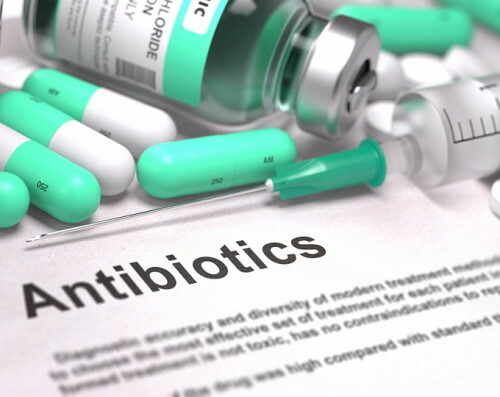 Antibiotics at a very young age can cause serious harm. Against the background of microflora disorders, there is a risk of further complications. But if the child is seriously ill or in critical condition, the doctor prescribes antibacterial drugs.
Antibiotics at a very young age can cause serious harm. Against the background of microflora disorders, there is a risk of further complications. But if the child is seriously ill or in critical condition, the doctor prescribes antibacterial drugs.
With the wrong reception
The biggest mistake a patient can make while undergoing antibiotic treatment is drinking alcohol. First of all, antibacterial drugs significantly increase the absorption of alcohol, respectively, a person gets drunk much faster. If he drinks in excess of the norm, then he may experience nausea and vomiting.
Some powerful antibiotics combined with alcohol can cause permanent damage to the liver by destroying its cells. Alcohol itself also negatively affects the effect of antibiotics. That is, it can happen that a person takes the medicine, but alcohol neutralizes its beneficial effect. As a result, the microflora of the body is destroyed, but the treatment becomes ineffective.
It is worth giving up some natural juices, caffeinated drinks. When interacting with some antibacterial agents, they can also reduce their effectiveness or lead to additional side effects.
Another dangerous mistake that a person can make is to extend the course of taking antibiotics on their own. Some patients believe that taking the medicine longer will only strengthen their body and protect it. But they forget that antibiotics strongly affect the microflora, so such drugs are not able to replace the natural functions of the human body.
Usually, doctors cut, not increase, antibiotics. For example, if the patient becomes much better after 3-4 days, then the specialist can cancel further taking the drug so as not to have an additional negative effect on the intestines and other organs.
Of course, you should not take such drugs as prophylactic agents for infectious diseases. You need to understand that an antibiotic is an emergency measure.
Antibiotics in food
Antibiotics affect the body both good and bad. But sometimes a person accepts such means and completely without his knowledge. As you know, some unscrupulous producers feed animals, whose meat later ends up on store shelves, with antibiotics. This is done in order to protect products from various viral infectious diseases and thereby not lose money if animals die from the disease.
It is impossible to say exactly how many such preparations are contained in meat and some other products. Most often, antibiotics are fed to cows and chickens. If you eat such meat for a long time, it can affect the human condition. But, of course, the effect on the body in this situation will not be the same as with self-administration of antibacterial drugs. However, this is not good either.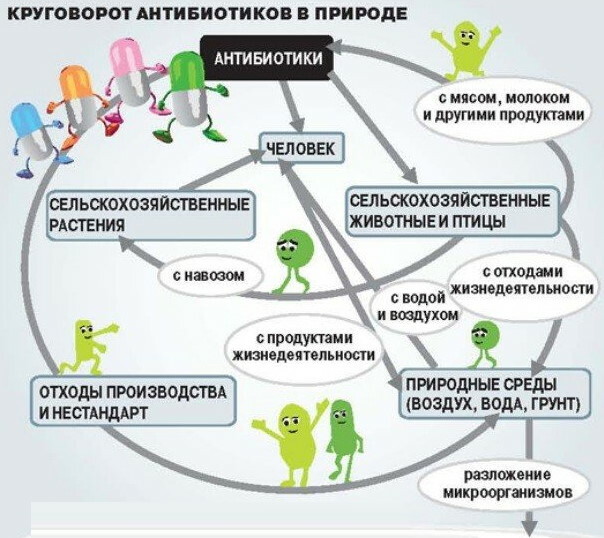
A serious load on the body can be obtained if the patient is already taking antibiotics of one group and at the same time consumes food, which may contain antibacterial agents of a different type. Therefore, it is worth not so often eating poultry and cow meat. Or it is worth buying such products from trusted manufacturers. While taking antibiotics, it is worth minimizing food intake, which may contain drugs. To reduce their impact, you need to pay attention to the heat treatment of meat.
Do I need to take antibiotics?
If the pathology is really very serious and we are talking about complex inflammatory processes, antibiotics will make it possible to quickly improve a person's condition. But if we are talking about the common cold and other problems that people face throughout the year, then taking antibacterial drugs is completely unjustified.
It is worth taking the drug only if it has been prescribed by a doctor. If there are doubts about the advisability of such therapeutic measures, then it is recommended to undergo examination in another medical institution and listen to the opinion of another specialist.
Thus, antibiotics can affect the body both positively and negatively. These are powerful drugs that quickly relieve pain and relieve the condition. But taking them without reason is not worth it, since you can worsen the work of the body.
Video about the effect of antibiotics on the body
Taking antibiotics and the effect on the body and immunity:

